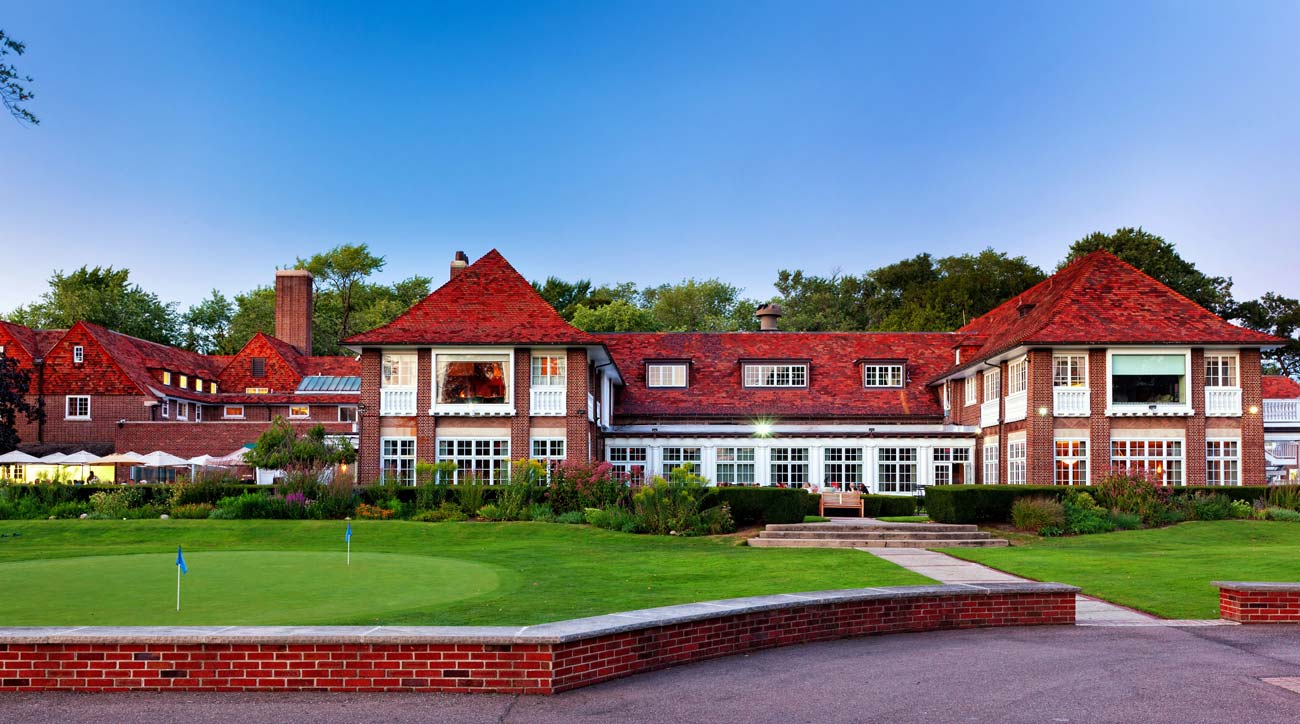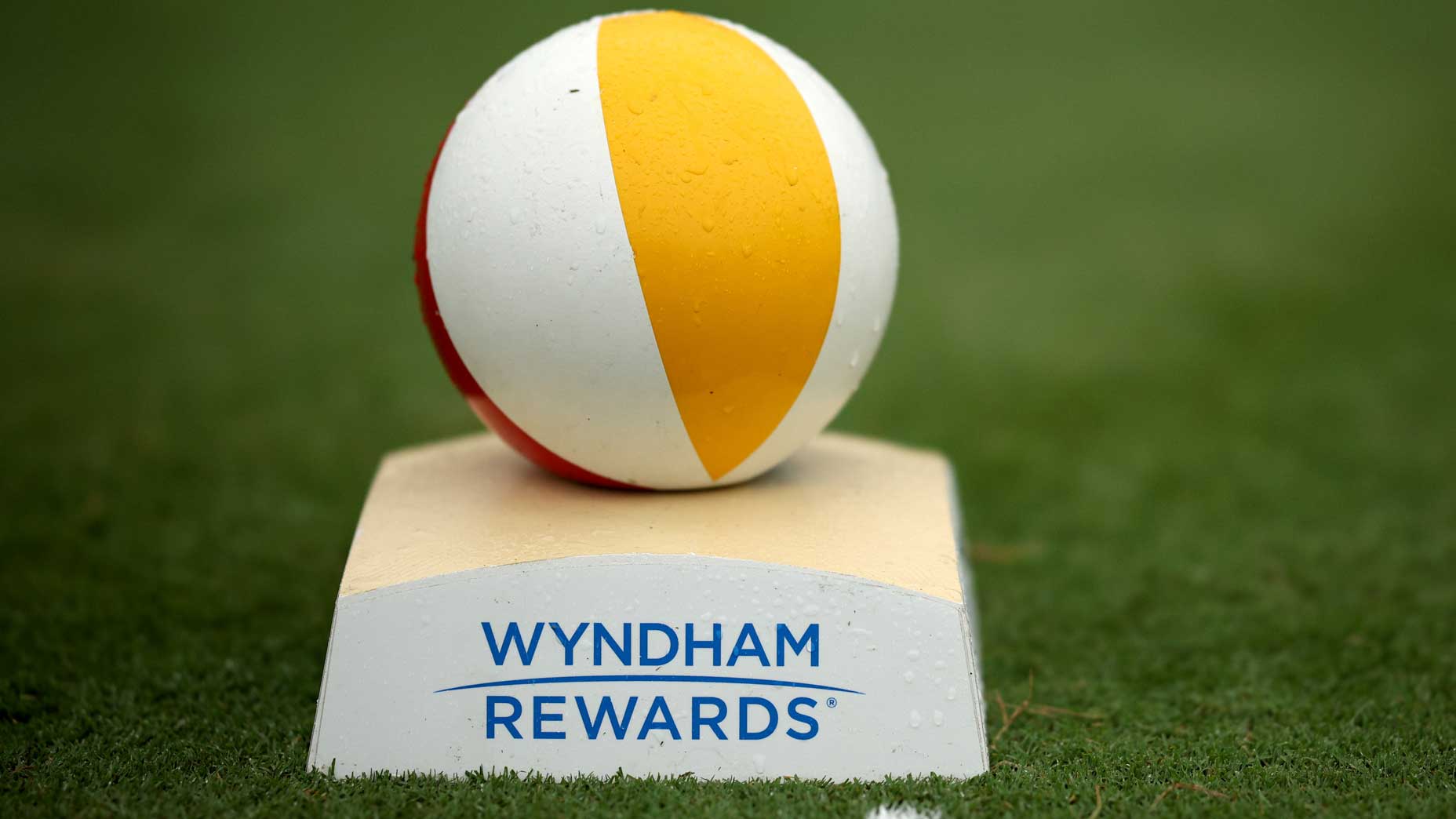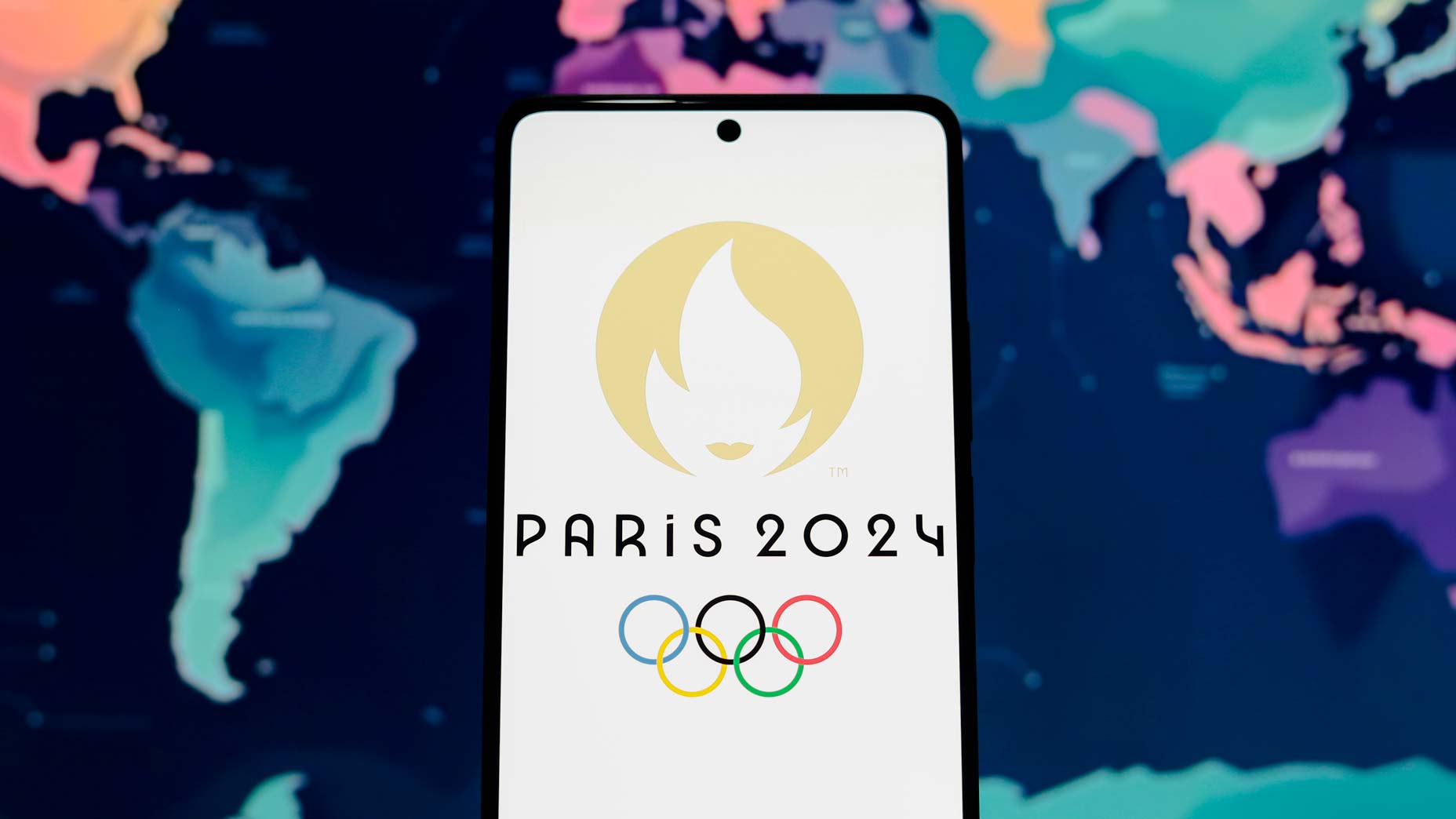 2025 CJ Cup Byron Nelson payout: Purse info, winner’s share
2025 CJ Cup Byron Nelson payout: Purse info, winner’s share
The inside story of how Detroit Golf Club landed the city’s first-ever PGA Tour event


No less than 15 months ago, the scene existed only in the recesses of Andy Glassberg’s mind. That’s when Glassberg, the president of Detroit Golf Club, got a phone call that turned a fantasy into the nascent stages of a thrilling reality.
“We have an interesting proposition for you,” said the voice on the other end of the line. It was Jason Langwell, now the director of the Rocket Mortgage Classic. “Would you be interested in potentially being a venue for a tournament that we would like to create in Detroit?”
Glasswell didn’t need to think on it. As far as he was concerned, the question was rhetorical.
Ten years earlier, amid the heart of Detroit’s devastating economic downturn, Glassberg — then a lower-ranking DGC board member — set a goal. He began corresponding with the PGA Tour, trying to better understand how his club could become “tournament-worthy.”
Given the timing, the idea alone was audacious. The club was bleeding members, it had lowered its initiation fees and, with that, came an inevitable loss of revenue.
DGC’s stewards played the long game. They hired Tom Doak, a course architect (and Michigan native) who specializes in Donald Ross restorations. They revamped both the North and South courses. They invested in the clubhouse and other member-centric components. The club’s intent was two-fold: redouble its efforts to maximize the membership experience, and, yes, hold out hope for a big-time tournament down the road.
On Langwell’s end, the phone call to Glassberg was several years in the making. In his role with Intersport, he handled all of Quicken Loans’ sports marketing consulting. When Quicken Loans — a Detroit-based company owned by Dan Gilbert — took over the title sponsorship of The National in Washington, D.C., its decision-makers did so with one aim in mind. In 2017, they made that endgame known to the PGA Tour in no uncertain terms.
“Look, we have interest in continuing,” Langwell recalls telling Tour representatives. “Our client is interested in continuing this. But if they do so, there’s gotta be a pathway to Detroit.”
And so it came to fruition. Quicken Loans signed a five-year deal in 2017, keeping the tournament in D.C. for one more year to give DGC time to prepare. The stage was set.
ADVERTISEMENT

“This is one of the great American cities, always has been, and great American cities should have great events,” Jay Farner, the CEO of Quicken Loans, told The Detroit News then. “We’ve been doing golf for quite a few years, we like it, we think it’s fun, we work with Rickie Fowler and it attracts a wide audience. Why not use golf as a jumping-off point to show people all the cool things that are happening in Detroit?”
The plight and revival of Detroit writ large has been well-chronicled, its narrative following some uniform tropes. It goes something like this: In the late 2000s, economic recession dealt massive blows to the automotive industry, crippling the city’s economic opportunity, and, ultimately, it’s population. In 2013, the city declared bankruptcy — the largest municipal bankruptcy filing in U.S. history.
Within 13 months, the city emerged from bankruptcy and began what some describe as a precipitous rise and others might characterize as rapid gentrification. Where there was abandonment, there are now condominiums. Where crime and poverty abounded, businesses and homes now reside. Reinvestment, largely from the area’s wealthiest contributors, spurred new life and a sparkling new stadium.
The reality is steeped in nuance. Depending upon whom you ask and for whom that revival is helping, Detroit is back or not back. There is no denying the infrastructural growth, but often those big changes, like shiny stadiums and high-rise apartments, operate as cosmetic fixes to the underlying rot.
The tournament, those involved say, does not serve as a referendum on those complexities. Rather, it focuses a spotlight on a city they deem to be rapidly ascendent.
“I would say the golf tournament is yet another element of the growth of the city, connecting parts of the city to other parts of the city,” Glassberg said. “Shining a light on the city to people who might not realize it is back. The event, in and of itself, is that the silver bullet? No. But it doesn’t need to be, either.”

Still, whether Detroit is truly revitalized or whether existent growth has simply rallied the community is, in some ways, part and parcel. Half the battle was instilling hope, which, speaking in broad strokes, seems to be in abundance.
“I mean, when the automotive industry had its crash, and the city had its crash in terms of bankruptcy, it’s like you’re walking around embarrassed,” said Karen Peek, the director of golf operations for Golf Detroit, which runs the city’s three municipal courses. “What you’re seeing is pride. We’re battlers. You know, we’re fighters. We don’t give up. And what I think is really appreciated is, yes, you don’t have to do this on, you don’t have to do this on the outskirts of town. You can come to town.”
This week, the PGA Tour is doing just that, with Detroit Golf Club emerging from the breadth of its long shadow to host the Rocket Mortgage Classic. It is historic on its face, the first tournament in the city of Detroit. But the event’s greatest significance lies largely in its symbolism — a golf tournament played on a course nudging the south end of 8 Mile Road, serving as a vehicle through which a city can share its story.
It’s a different story, depending on who’s telling it, but this week, for the first time ever, the plot coalesces around golf.
“So many times, Detroiters are left behind or overlooked,” Paula Love, the president of The First Tee of Greater Detroit, said by phone the other day. “The fact that Dan Gilbert’s going to bring the PGA tournament to Detroit, it makes you feel that not only can you buy a ticket to the dance, but you’re also invited to go and you’re somebody’s guest. That’s a wonderful feeling. That’s a story of inclusion, and that’s a story of diversity.”
Just a couple blocks from DGC, past the gate and practice area, three of the superstars in this week’s field are displayed for passers-by to see. Their likenesses are plastered on a billboard overlooking 7 Mile Road.
“Rocket Mortgage Classic,” the sign reads in big letters. “Detroit’s major.”
On a sun-splashed afternoon last week you needn’t have ventured far inside the gates of Detroit Golf Club to sense the nervous energy percolating around a club prepping for the biggest moment in its 120-year history. There was an urgency with which the employees, volunteers and staffers went about their duties. Forklifts transported different forms of metal around the grounds. A boy drove a golf cart around the corner of the clubhouse, with another cart hot on his tail. A staffer surveyed a bunker, working to dry it out after a heavy rainfall. Workers on mowers perfected the fairways, trimmed the rough and smoothed the greens on which the game’s best players would descend a week later.
No less than 15 months ago, the scene existed only in the recesses of Andy Glassberg’s mind. That’s when Glassberg, the president of Detroit Golf Club, got a phone call that turned a fantasy into the nascent stages of a thrilling reality.
“We have an interesting proposition for you,” said the voice on the other end of the line. It was Jason Langwell, now the director of the Rocket Mortgage Classic. “Would you be interested in potentially being a venue for a tournament that we would like to create in Detroit?”
Glasswell didn’t need to think on it. As far as he was concerned, the question was rhetorical.
Ten years earlier, amid the heart of Detroit’s devastating economic downturn, Glassberg — then a lower-ranking DGC board member — set a goal. He began corresponding with the PGA Tour, trying to better understand how his club could become “tournament-worthy.”
Given the timing, the idea alone was audacious. The club was bleeding members, it had lowered its initiation fees and, with that, came an inevitable loss of revenue.
DGC’s stewards played the long game. They hired Tom Doak, a course architect (and Michigan native) who specializes in Donald Ross restorations. They revamped both the North and South courses. They invested in the clubhouse and other member-centric components. The club’s intent was two-fold: redouble its efforts to maximize the membership experience, and, yes, hold out hope for a big-time tournament down the road.

ADVERTISEMENT
On Langwell’s end, the phone call to Glassberg was several years in the making. In his role with Intersport, he handled all of Quicken Loans’ sports marketing consulting. When Quicken Loans — a Detroit-based company owned by Dan Gilbert — took over the title sponsorship of The National in Washington, D.C., its decision-makers did so with one aim in mind. In 2017, they made that endgame known to the PGA Tour in no uncertain terms.
“Look, we have interest in continuing,” Langwell recalls telling Tour representatives. “Our client is interested in continuing this. But if they do so, there’s gotta be a pathway to Detroit.”
And so it came to fruition. Quicken Loans signed a five-year deal in 2017, keeping the tournament in D.C. for one more year to give DGC time to prepare. The stage was set.
“This is one of the great American cities, always has been, and great American cities should have great events,” Jay Farner, the CEO of Quicken Loans, told The Detroit News then. “We’ve been doing golf for quite a few years, we like it, we think it’s fun, we work with Rickie Fowler and it attracts a wide audience. Why not use golf as a jumping-off point to show people all the cool things that are happening in Detroit?”

The plight and revival of Detroit writ large has been well-chronicled, its narrative following some uniform tropes. It goes something like this: In the late 2000s, economic recession dealt massive blows to the automotive industry, crippling the city’s economic opportunity, and, ultimately, it’s population. In 2013, the city declared bankruptcy — the largest municipal bankruptcy filing in U.S. history.
Within 13 months, the city emerged from bankruptcy and began what some describe as a precipitous rise and others might characterize as rapid gentrification. Where there was abandonment, there are now condominiums. Where crime and poverty abounded, businesses and homes now reside. Reinvestment, largely from the area’s wealthiest contributors, spurred new life and a sparkling new stadium.
The reality is steeped in nuance. Depending upon whom you ask and for whom that revival is helping, Detroit is back or not back. There is no denying the infrastructural growth, but often those big changes, like shiny stadiums and high-rise apartments, operate as cosmetic fixes to the underlying rot.
The tournament, those involved say, does not serve as a referendum on those complexities. Rather, it focuses a spotlight on a city they deem to be rapidly ascendent.
“I would say the golf tournament is yet another element of the growth of the city, connecting parts of the city to other parts of the city,” Glassberg said. “Shining a light on the city to people who might not realize it is back. The event, in and of itself, is that the silver bullet? No. But it doesn’t need to be, either.”
Still, whether Detroit is truly revitalized or whether existent growth has simply rallied the community is, in some ways, part and parcel. Half the battle was instilling hope, which, speaking in broad strokes, seems to be in abundance.
“I mean, when the automotive industry had its crash, and the city had its crash in terms of bankruptcy, it’s like you’re walking around embarrassed,” said Karen Peek, the director of golf operations for Golf Detroit, which runs the city’s three municipal courses. “What you’re seeing is pride. We’re battlers. You know, we’re fighters. We don’t give up. And what I think is really appreciated is, yes, you don’t have to do this on, you don’t have to do this on the outskirts of town. You can come to town.”
This week, the PGA Tour is doing just that, with Detroit Golf Club emerging from the breadth of its long shadow to host the Rocket Mortgage Classic. It is historic on its face, the first tournament in the city of Detroit. But the event’s greatest significance lies largely in its symbolism — a golf tournament played on a course nudging the south end of 8 Mile Road, serving as a vehicle through which a city can share its story.
It’s a different story, depending on who’s telling it, but this week, for the first time ever, the plot coalesces around golf.
“So many times, Detroiters are left behind or overlooked,” Paula Love, the president of The First Tee of Greater Detroit, said by phone the other day. “The fact that Dan Gilbert’s going to bring the PGA tournament to Detroit, it makes you feel that not only can you buy a ticket to the dance, but you’re also invited to go and you’re somebody’s guest. That’s a wonderful feeling. That’s a story of inclusion, and that’s a story of diversity.”
Just a couple blocks from DGC, past the gate and practice area, three of the superstars in this week’s field are displayed for passers-by to see. Their likenesses are plastered on a billboard overlooking 7 Mile Road.
“Rocket Mortgage Classic,” the sign reads in big letters. “Detroit’s major.”

ADVERTISEMENT





